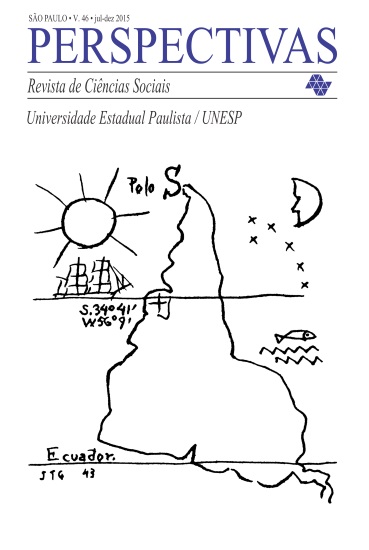Bourgeois heterogeneity, democratization and civil society in Fernando Henrique Cardoso
Keywords:
Fernando Henrique Cardoso, Industrial entrepreneur, Dependence, Authoritarianism, Democratization, Civil Society,Abstract
In his habilitation thesis Industrial entrepreneur and economic development in Brazil (1963), Fernando Henrique Cardoso discusses the participation of industrial entrepreneurs in the economic development of the country and provides elements for the analysis of their mentality, ideology and behavior. He tries to show that, with rare exceptions, there is no tendency among the members of this social class to fulfill the role of a “national bourgeoisie” capable of leading a development project and contesting the political hegemony of society. On the contrary, on its performance there would almost always be a tendency of association with foreign capital. As a consequence of this perception and his experience in CEPAL (Economic Commission for Latin America) after the military coup of 1964, Cardoso made a change of focus about the possibilities of economic development in Latin America, opening up to the consideration of other dimensions of social and political reality. At CEPAL he faces a heated debate and shows a critical position regarding the thesis of economic stagnation, according to which the peripheral countries would be doomed to “pastoralization” and underdevelopment. To oppose the stagnationist view, he formulates, in partnership with Enzo Faletto and using an innovative methodology, the “dependency theory”, which, unlike the cepaline conception and also those represented by authors such as Theotônio dos Santos, Ruy Mauro Marini and André Gunder Frank, affirmed that there was no stagnation, but development, although a dependent and associated one. Based on this reading of the real, in addition to claiming the need to analyze the concrete situation of each Latin American country, Cardoso developed the argument presented above, centered on the idea of the inexistence of an entrepreneurial national bourgeoisie and a hegemonic political project, showing that, in its place, a different type of industrial entrepreneur had been built, which was prone to develop a set of “adaptive reactions” to the dynamics of world capitalism. Such perception broadens his angle of view, shifting it from the exclusive focus on structural issues to an appreciation of the political dimension, which allows it to elaborate an understanding of the State, the civil society and the social movements, which will have a strong impact on the democratic transition. The text seeks to follow this widening of perspective through the works The Brazilian political model (1972) and Authoritarianism and democratization (1975) and in the set of articles written to Opinião newspaper.Downloads
Published
05/07/2017
Issue
Section
Desenvolvimento e mudança social

